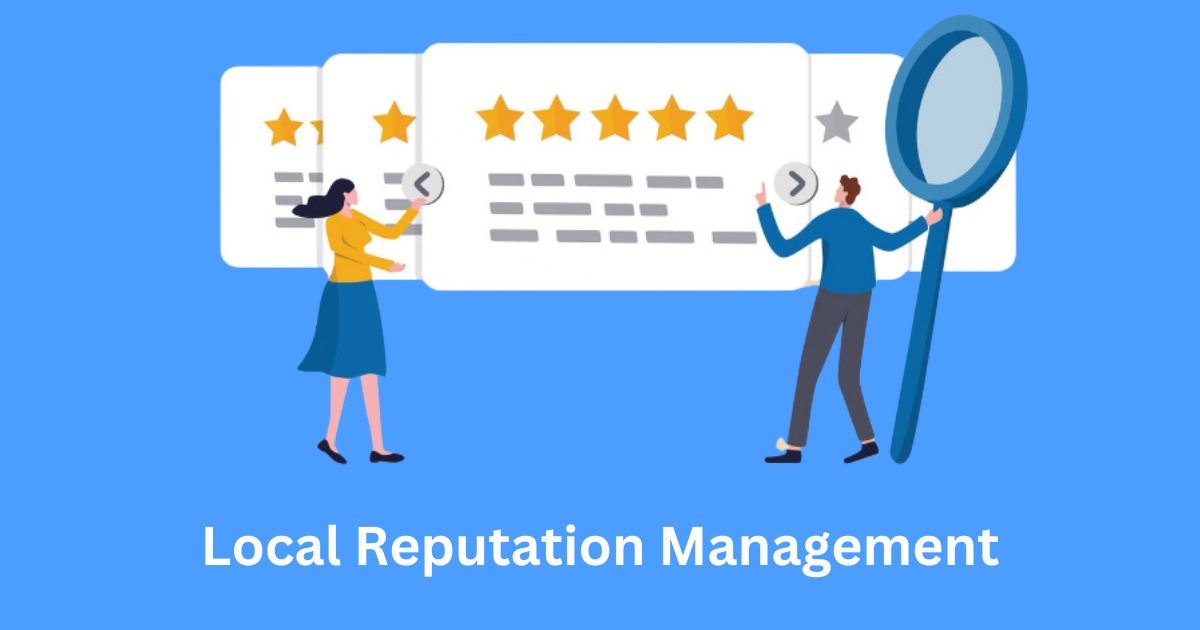In today’s digital landscape, local reputation management has become a critical aspect of any successful business strategy. As a local business owner, your online reputation can make or break your success.
With the rise of social media and online review platforms, customers now have the power to shape public perception of your brand. That’s why it’s important to actively manage your local reputation to attract new customers, build trust, and drive growth.
At VH-info, we understand the importance of local reputation management for SaaS companies. Our team of experts specializes in providing actionable insights and strategies to help you navigate the complex world of online reputation.
In this comprehensive guide, we’ll dive into the fundamentals of local reputation management, explore its benefits, and share proven strategies to help you take control of your online presence.
What is Local Reputation Management?

Local reputation management is the process of monitoring, influencing, and controlling the public perception of your business within your local community. It involves actively managing your online presence across various platforms, including search engines, social media, and review sites. The goal is to promote a positive image of your brand, address negative feedback, and engage with your customers to build trust and credibility.
Why is Local Reputation Management Important?
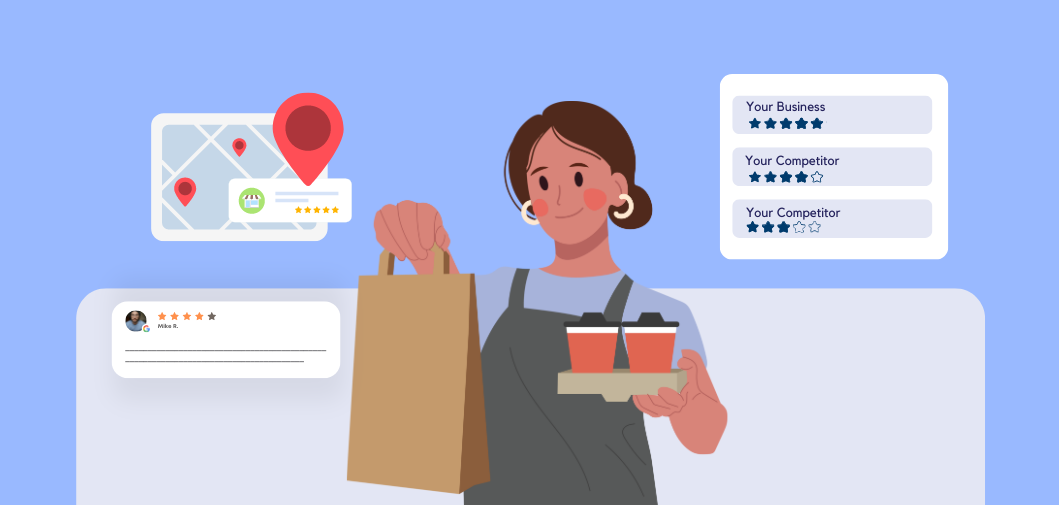
In today’s digital age, your online reputation is often the first impression potential customers have of your business. A positive reputation can attract new customers, increase trust, and drive revenue, while a negative reputation can deter potential customers and harm your bottom line.
Consider these statistics:
- 97% of consumers read online reviews before making a purchase decision.
- 94% of consumers say a negative review has convinced them to avoid a business.
- A one-star increase in your Yelp rating can lead to a 5-9% increase in revenue.
These numbers highlight the significant impact your online reputation can have on your business’s success.
Fundamental Benefits of Local Reputation Management

Standard Benefits:
- Increased visibility in local search results
- Higher trust and credibility among potential customers
- Improved customer acquisition and retention
- Greater insights into customer sentiment and feedback
Emotional Benefits
- Peace of mind knowing your online reputation is being actively managed
- Pride in showcasing your business’s positive image and customer satisfaction
- Confidence in your ability to attract and retain customers based on your strong reputation
Why is Localized SEO Important?
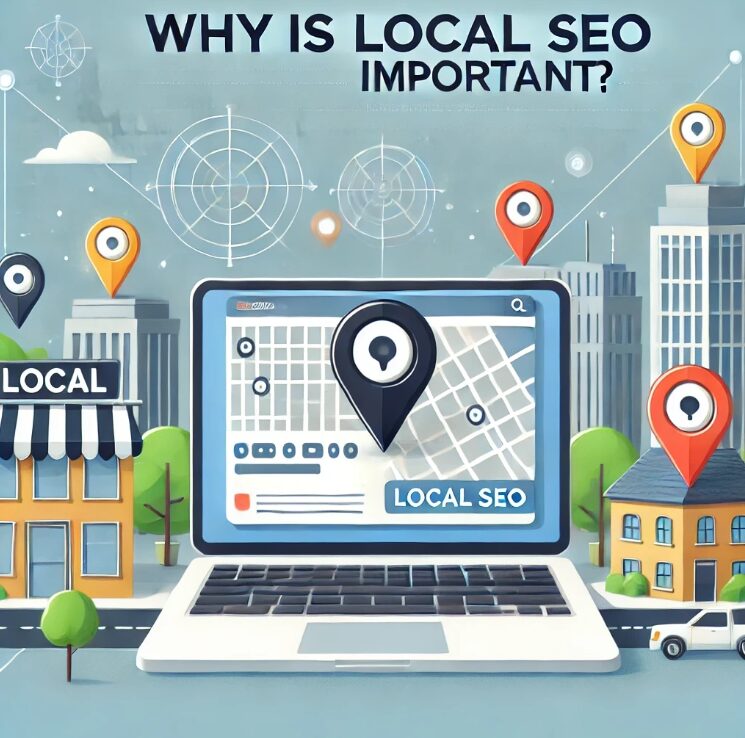
Localized SEO is the practice of optimizing your online presence to rank higher in local search results. When potential customers search for businesses like yours on Google, you want to appear at the top of the results.
A strong local SEO strategy can help you achieve this by improving your visibility and making it easier for customers to find you online.
Local SEO and reputation management go hand in hand. Positive reviews and a well-optimized Google My Business listing can significantly boost your local search rankings, driving more traffic and customers to your business.
Key Components of Local Reputation Management

Online Reviews
Online reviews are the backbone of your local reputation. Positive reviews can attract new customers and build trust, while negative reviews can deter potential customers and harm your reputation. It’s essential to actively monitor and manage your reviews across platforms like Google, Yelp, and Facebook.
Local Listings
Local listings, such as Google My Business and Yelp, provide valuable information about your business, including your address, phone number, hours of operation, and customer reviews. Ensuring your listings are accurate, complete, and optimized can improve your visibility in local search results and make it easier for customers to find and contact you.
Social Media Presence
Social media platforms like Facebook, Twitter, and Instagram provide an opportunity to engage with your customers, showcase your brand, and build relationships. Regularly posting updates, responding to comments and messages, and monitoring your social media presence can help you maintain a positive reputation and attract new customers.
Website Optimization
Your website is often the first point of contact for potential customers. Ensuring your website is user-friendly, informative, and optimized for search engines can improve your online reputation and drive more traffic to your business.
Positive Reviews Vs. Negative Reviews
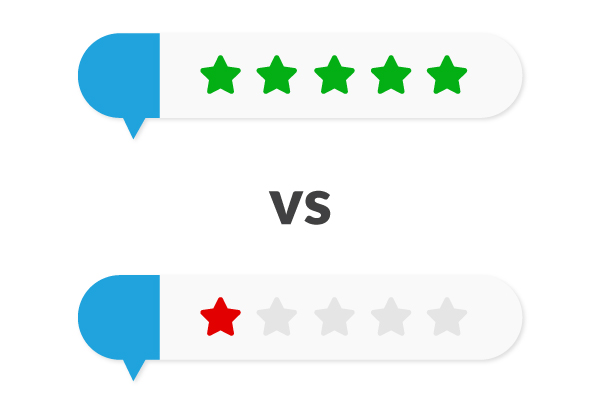
Positive Reviews
Positive reviews are the lifeblood of your online reputation. They serve as social proof, demonstrating to potential customers that your business is trustworthy and delivers quality products or services. Encouraging satisfied customers to leave positive reviews can help you build a strong online reputation and attract new business.
Negative Reviews
Negative reviews can be damaging to your reputation, but they also provide an opportunity to showcase your customer service and commitment to improvement. Responding promptly and professionally to negative reviews can help mitigate their impact and demonstrate to potential customers that you value their feedback and are willing to address their concerns.
Which Review Sites Matter?
While there are countless review sites out there, some carry more weight than others.
The most important review sites for local businesses include:
- Google My Business
- Yelp
- Industry-specific sites (e.g., TripAdvisor for hotels, Avvo for lawyers)
Focusing your efforts on these key platforms can help you maximize your impact and efficiently manage your online reputation.
Strategies For Effective Local Reputation Management

Monitoring Your Online Presence
The first step in effective reputation management is monitoring your online presence. This involves regularly checking your reviews, social media mentions, and local listings to stay on top of what people are saying about your business.
Tools like Google Alerts and social media monitoring software can help you keep track of your online reputation.
Responding to Reviews
Responding to reviews, both positive and negative, shows that you value your customers’ feedback and are committed to providing excellent service.
When responding to negative reviews, remain professional, acknowledge the customer’s concerns, and offer a solution or invitation to discuss the matter further offline.
Optimizing Local Listings
Ensuring your local listings are accurate, complete, and optimized can improve your visibility in local search results and make it easier for customers to find and contact you.
Regularly updating your listings with fresh content, photos, and special offers can also help you stand out from the competition.
Engaging on Social Media
Social media provides an opportunity to engage with your customers, showcase your brand, and build relationships.
Regularly posting updates, responding to comments and messages, and monitoring your social media presence can help you maintain a positive reputation and attract new customers.
Creating Quality Content
Creating high-quality, informative content can help you establish your business as a thought leader in your industry and attract new customers.
Blog posts, videos, and infographics that provide value to your target audience can improve your online reputation and drive more traffic to your website.
Tools For Local Reputation Management

Managing your online reputation can be time-consuming, but there are tools available to help streamline the process.
Some popular reputation management tools include:
- Google My Business
- Hootsuite for social media management
- Yext for local listing management
- Podium for review management
These tools can help you monitor your online presence, respond to reviews, and optimize your local listings more efficiently.
Best Practices For Local Reputation Management

- Consistently monitor your online presence
- Respond promptly and professionally to all reviews
- Encourage satisfied customers to leave positive reviews
- Regularly update your local listings with fresh content
- Engage with your audience on social media
- Create high-quality, informative content
- Use reputation management tools to streamline the process
By following these best practices, you can effectively manage your local reputation and build a strong, positive online presence.
Common Challenges in Local Reputation Management
While local reputation management is essential, it’s not always easy.
Some common challenges businesses face include:
- Dealing with negative reviews
- Encouraging customers to leave reviews
- Keeping local listings accurate and up-to-date
- Finding time to consistently monitor and manage online presence
- Responding to reviews in a timely and professional manner
Anticipating these challenges and having a plan in place to address them can help you more effectively manage your local reputation.
Measuring Success in Local Reputation Management
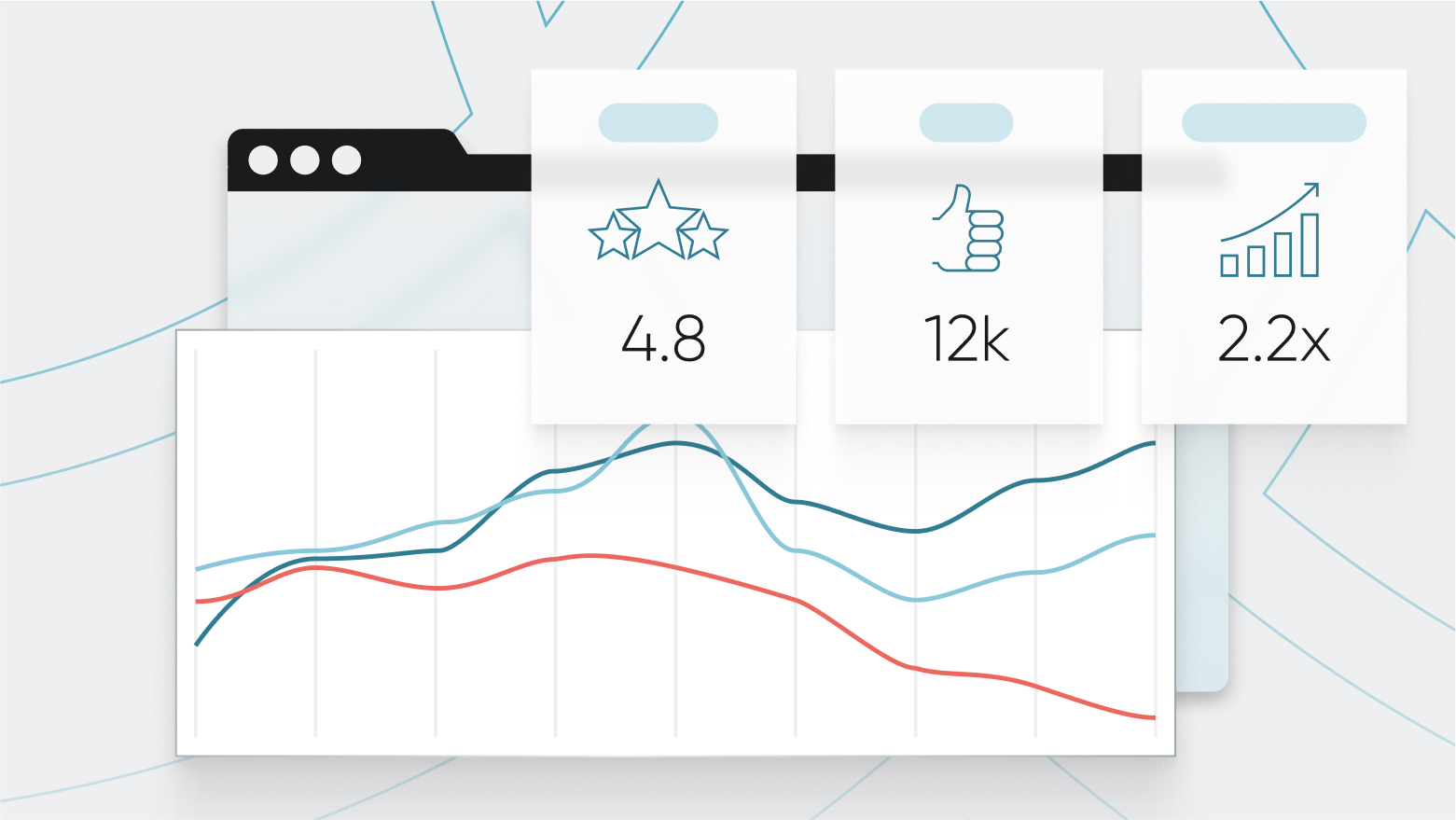
To determine the effectiveness of your reputation management efforts, it’s important to track key metrics such as:
- Number and quality of reviews
- Average star rating
- Local search rankings
- Website traffic from local searches
- Social media engagement and sentiment
Regularly monitoring these metrics can help you identify areas for improvement and adjust your strategy accordingly.
How Can You Improve Your Local Business Reviews?

- Talk to Your Customers: Encourage satisfied customers to leave reviews by asking them directly or sending follow-up emails with links to your review profiles. It is one of the best reputation management practices as it not only improves your brand’s reputation but also help with a bit of personal brand building.
- Offer High-Quality Products: The best way to earn positive reviews is by consistently delivering high-quality products or services that meet or exceed customer expectations.
- Use Feedback: Negative reviews can provide valuable insights into areas for improvement. Use this feedback to address issues and enhance the customer experience. Make sure you do review monitoring as a part of your reputation management work.
- Track Your Reputation: Regularly working on your online reputation management allows you to quickly identify and address any negative reviews or issues that arise.
How Can You Improve A Damaged Local Business Reputation?

Fixing problems quickly and asking for feedback can help improve a local business’s damaged reputation. It’s important to connect well with customers and show positive testimonials. These steps are vital in rebuilding trust and credibility.
- Assess the Situation: If your business has suffered reputational damage, the first step is to assess the situation and identify the root cause of the problem.
- Always Respond to Feedback: Responding promptly and professionally to negative reviews shows that you value customer feedback and are committed to addressing their concerns.
- Ask For Customer Testimonials: Reach out to satisfied customers and ask them to share their positive experiences in the form of reviews or testimonials.
- Reaching Out To Industry Leaders: Partnering with respected industry leaders or influencers can help lend credibility to your business and improve your reputation.
FAQ’s:
How Long Does it Take to See Results From Local Reputation Management?
Building a strong online reputation takes time and consistent effort. While you may see some immediate improvements, such as an increase in positive reviews, it typically takes several months to see significant results in terms of search rankings and customer acquisition.
Can I Manage My Local Reputation Without Professional Help?
While it is possible to manage your local reputation on your own, it can be time-consuming and challenging, especially if you’re not familiar with the best practices and tools involved. Working with a professional reputation management service can help you more effectively monitor and improve your online presence.
How Often Should I Check My Online Reviews?
It’s recommended to monitor your online reviews at least weekly, if not daily. This allows you to quickly identify and respond to any negative reviews or issues that arise.
What Should I Do If I Receive a Negative Review?
If you receive a negative review, respond promptly and professionally. Acknowledge the customer’s concerns, apologize for any inconvenience, and offer a solution or invitation to discuss the matter further offline. Avoid getting defensive or argumentative, as this can further damage your reputation.
How Can I Encourage Customers to Leave Reviews?
There are several ways to encourage customers to leave reviews, including:
- Asking them directly after a positive experience
- Sending follow-up emails with links to your review profiles
- Offering incentives, such as discounts or free products, for leaving a review
- Making it easy for customers to leave reviews by providing links on your website and social media profiles
Conclusion
Local reputation management is a critical component of any successful business strategy.
Actively monitoring and managing your online presence can help you build trust, attract new customers, and drive growth.
Implement the strategies and best practices outlined in this guide to take control of your online presence and build a strong, positive reputation in your local community. Make sure to go through your recent reviews and always ask your customers to give you new reviews.
Remember, your reputation is your most valuable asset – invest in it wisely.

